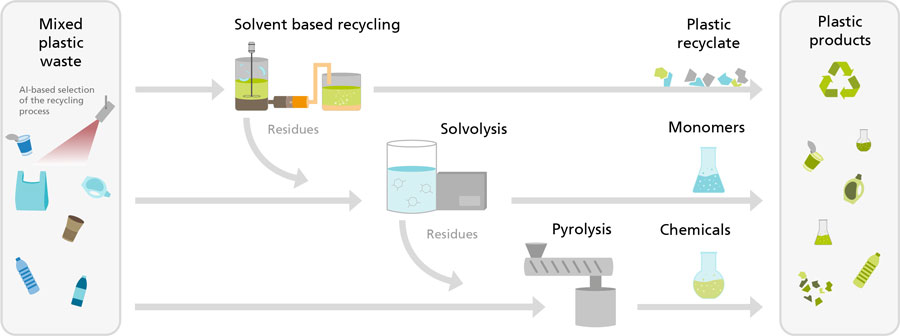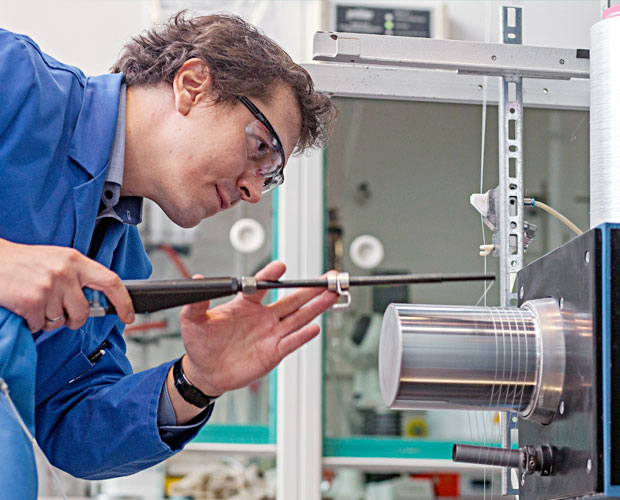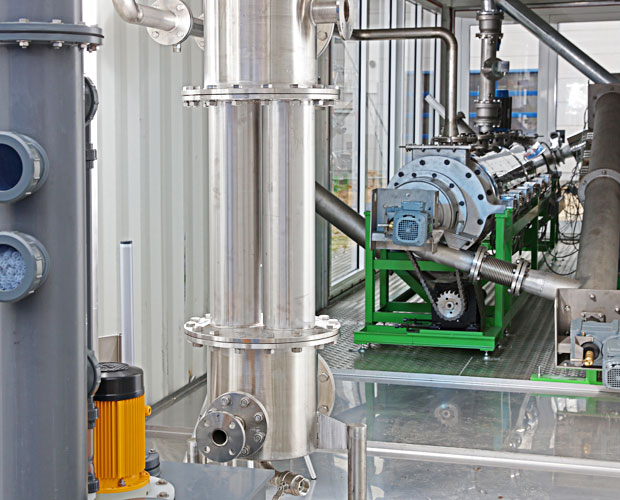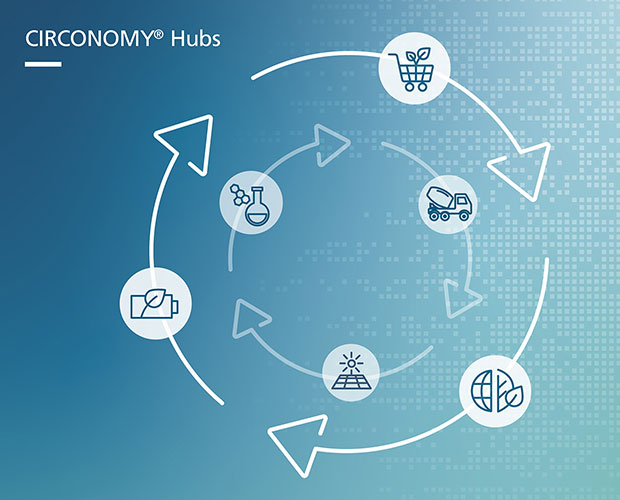The future is called "circular economy"
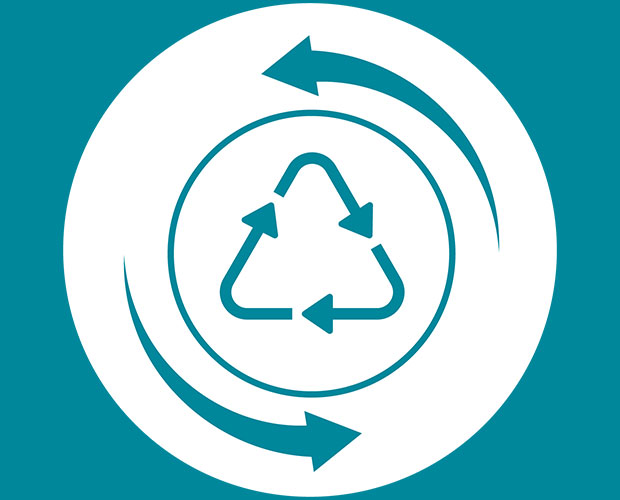
In order to safeguard humanity's livelihoods, the linear economy of the past is gradually being transformed into a circular economy. This development is exerting enormous pressure on the chemical and plastics industries to reform and is leading to new products and business models.
This involves value chains based on minerals, metal ores, biomass, fossil raw materials, water, air and soil as well as the complex functions of ecosystems. The concept of the "circular economy" (CE) is now the international method of choice for the sustainable management of resources. The aim of the circular economy is to control the extraction of raw materials from the environment in such a way that the sources and sinks are conserved and the growth in consumption and prosperity resulting from population growth can be satisfied in the long term.
